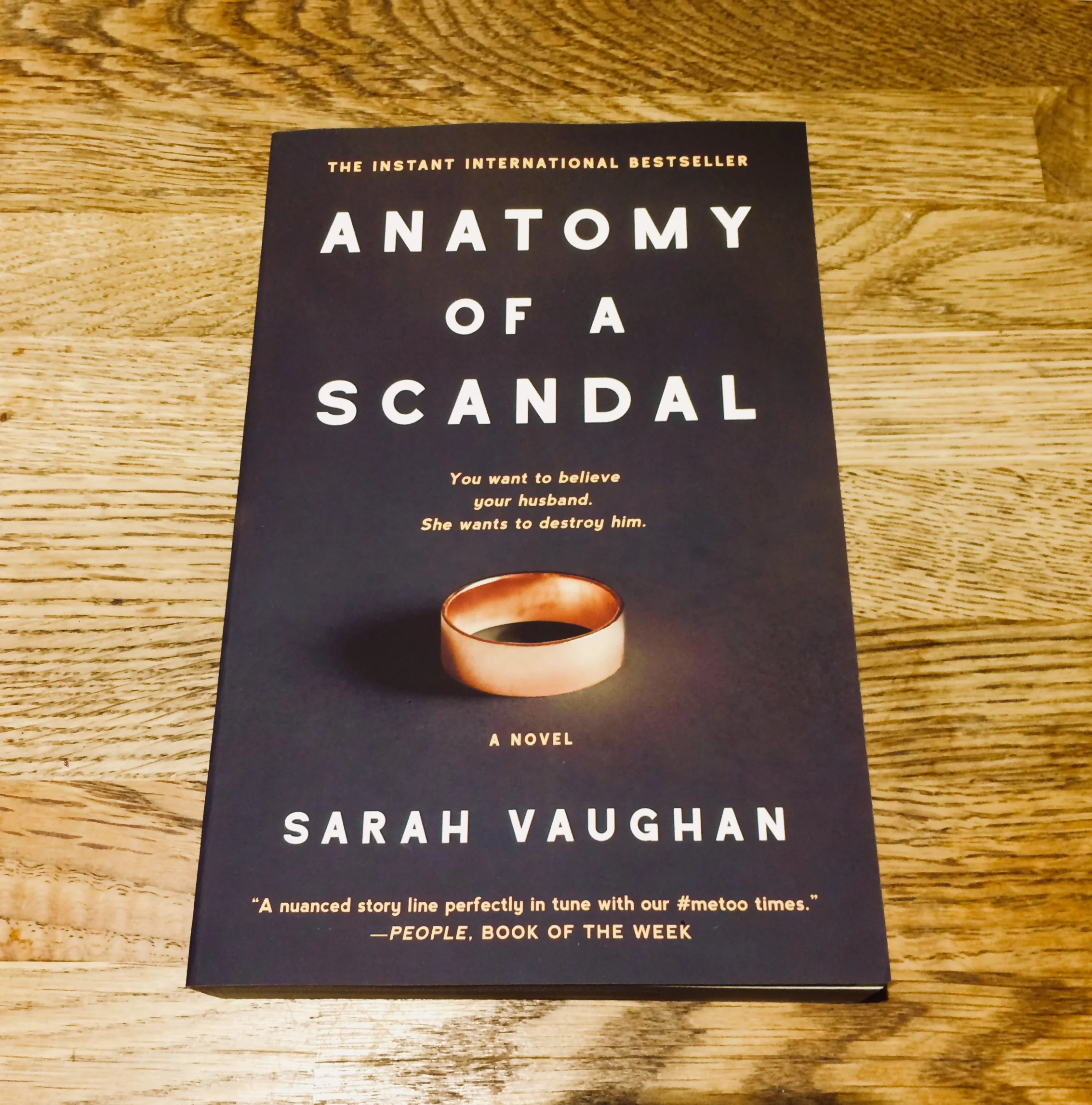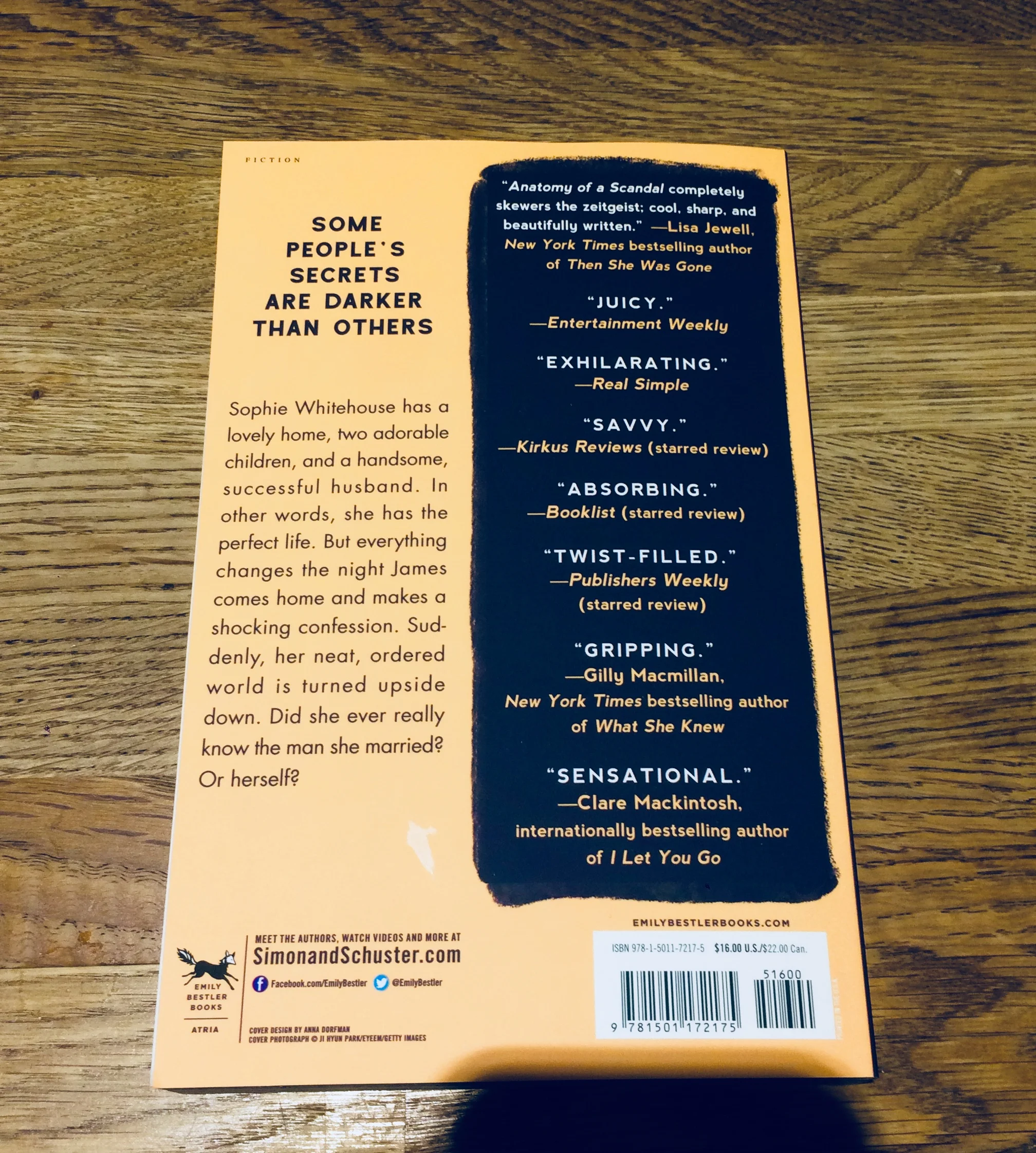Powerful allies, frat boy culture and consent: how Anatomy of a Scandal resonates with Kavanaugh.
It’s the US paperback publication of #Anatomy of a Scandal today - and once again the timing could hardly have been more prescient. The issue of what happens when entitled boys become powerful men has been thrown into sharp focus by a televised drama that has gripped America: the Senate judiciary committee hearing into whether Supreme Court nominee Brett Kavanaugh sexually assaulted Christine Blasey Ford at a teenage party 36 years ago.
Donald Trump’s Supreme Court nominee is alleged to have clamped a hand over the then 15-year-old’s mouth and wrestled with her clothing. Giving evidence under oath, Dr Ford said she believed she was going to be raped and accidentally killed, and was “100 per cent” certain he was the 17-year-old who pinned her to a bed against her will. A visibly irate Judge Kavanaugh repeated that he was innocent. But while the President immediately tweeted his support - his performance “showed America exactly why I nominated him,” - Judge Kavanaugh’s injudicious behaviour has raised doubts about his suitability as a Supreme Court justice. As an article in the New York Times yesterday opined: “Retribution and distemper — even under extraordinary stress, which can obscure but also amplify a person’s character — are not qualities one should seek in a Supreme Court justice or a judge of any kind.”
Without creating spoilers, Anatomy of a Scandal - my #metoo marriage thriller/courtroom drama - explores the sort of frat boy culture that Judge Kavanaugh is alleged to have enjoyed at Yale law through a fictitious Oxford university dining club called The Libertines. (Itself, a thinly disguised Bullingdon Club, to which the former prime minister David Cameron, and former foreign secretary Boris Johnson belonged.)
In my present day story, when my charismatic politician James Whitehouse is accused of raping a parliamentary aide with whom he’s been having an affair in a House of Commons elevator, he retains the backing, at least in private, of his ally, the Prime Minister - just as Judge Kavanaugh retains the support of President Trump.
I’ve written about the cognitive dissonance of writing fiction only to see it reflected in real life here for the US literary site, CrimeReads: a piece prompted by the Westminster sexual harassment allegations, that led to the resignation of two Cabinet ministers, last October (and included three claims of an MP groping in a lift.)
A year to the week that the Harvey Weinstein allegations broke, Anatomy of a Scandal’s themes of power, privilege and consent, and its examination of a certain kind of toxic masculinity have not only been seen in Hollywood, sport and the City but are now being discussed in relation to a nominee to the Supreme Court.
In the words of People magazine which picked it as their book of the week, it’s “a nuanced story line perfectly in tune with our #metoo times.” To quote New York Times bestselling author Lisa Jewell it “completely skewers the zeitgeist.”
I hope it enrages, as much as it entertains.

